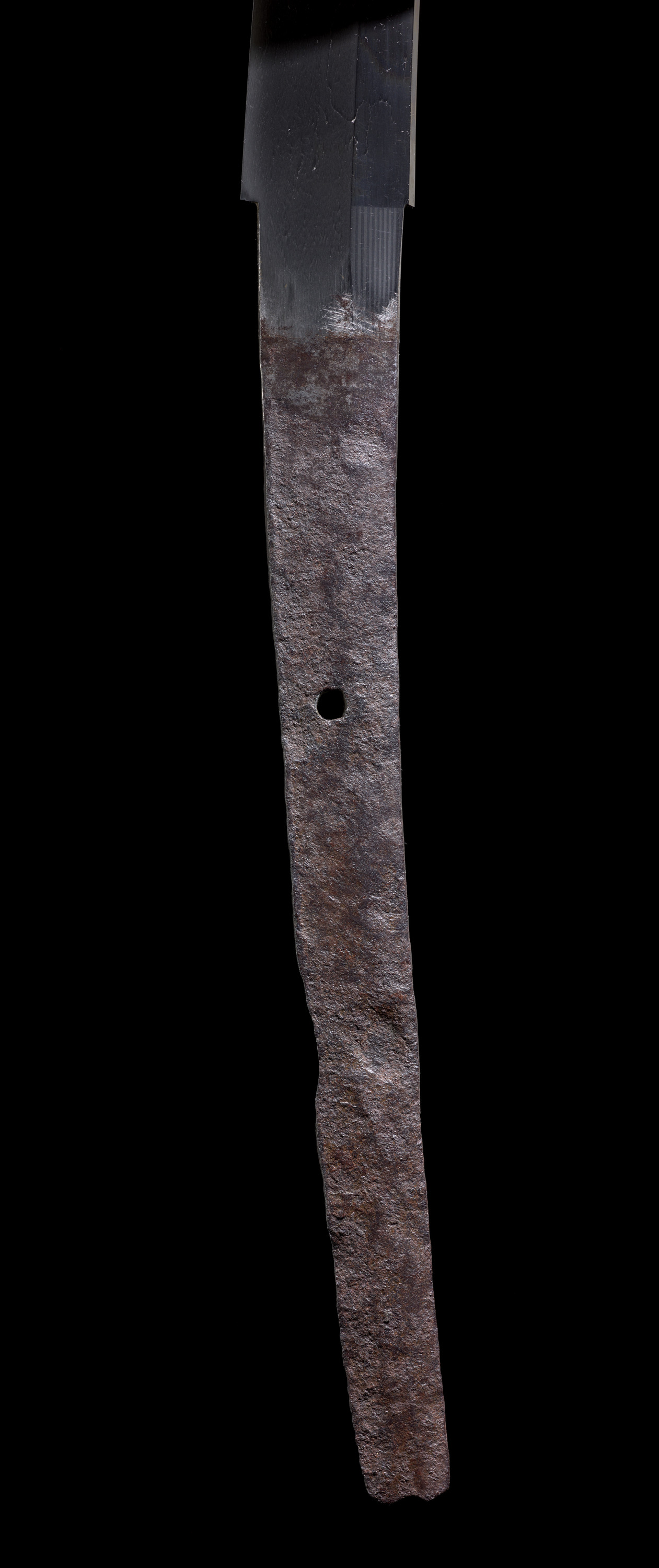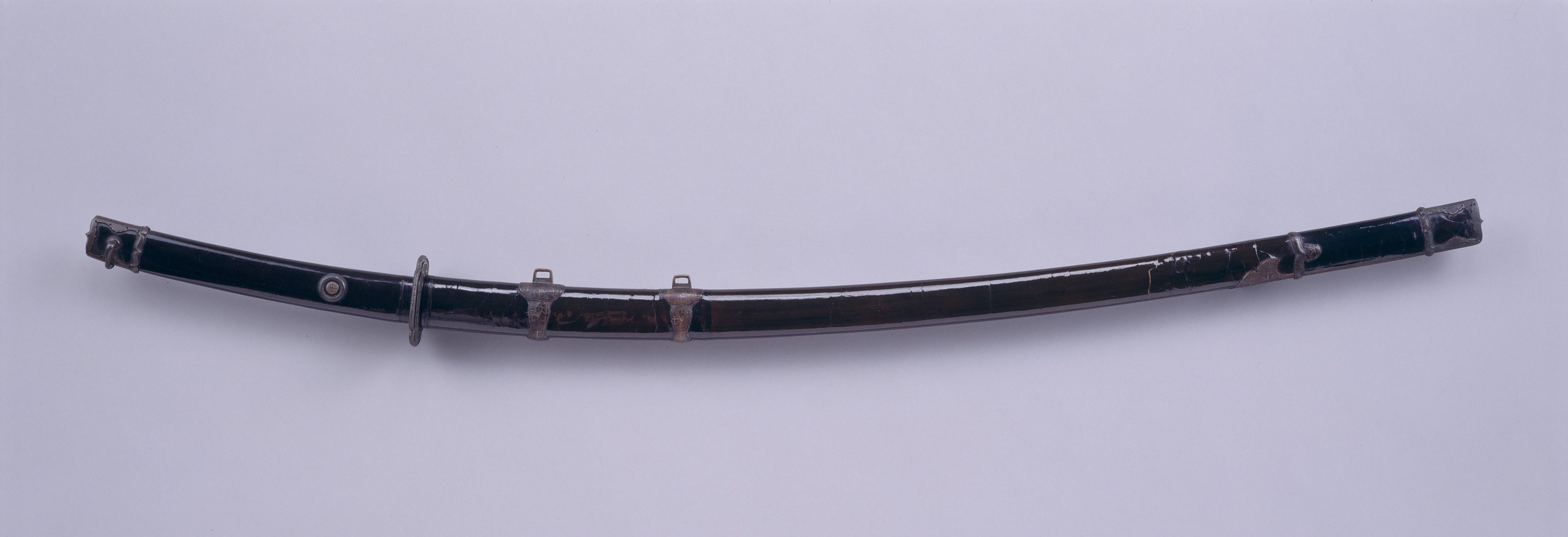- TOP
- Long Sword (Tachi), Signed "Naminohira Yukiyasu
Overview
Important Cultural Property
Long Sword (Tachi), Signed "Naminohira Yukiyasu
- Museum No.
- EK186
Showing 1-6 of 5
| Title | Long Sword (Tachi), Signed "Naminohira Yukiyasu |
|---|---|
| Designation | Important Cultural Property |
| Artist | Naminohira Yukiyasu |
| Category | Metalwork(E), Sword |
| Country | Japan |
| Period | Kamakura Prophase |
| Century | 13th |
| Year | |
| Quantity | |
| Materials | |
| Dimensions | Length 72.5cm Curvature 2.3cm |
| Inscription by | |
| Signature/Seals Etc | 佩表目釘下中央に「波平行安」と刻銘 |
| Donor |
This object may be one within a set or the title of a set. To see all objects in the set, perform a Category Search by the Museum Number below, entering numerals only before the hyphen.















After the Kamakura period (1185-1333) on through the Edo period (1615-1868), the name of Naminohira Yukiyasu was passed down from generation to generation of sword makers who lived in Naminohira, Satsuma Province (corresponding to the southern outskirts of present day Kagoshima City). This long sword (J., tachi) blade, called "Sasanuki," is a rare example of a blade made by a Kamakura-period Yukiyasu. This famous sword was handed down in the Satsuma area, where it originated.
The tip of the blade has a curved edge and is of the short, wide blade point known as "boar's neck" (J., ikubi). The blade itself is deeply curved. A number of features are similar to the Yamato style: the lengthwise ridge of the blade (J., shinogi) is thick; the wood-grain texture of the metal surface consists of lines that are nearly straight and parallel; the forging has resulted in discernible fine particles on the blade's surface; and the temper line is straight. This agrees with the local account, according to which Yukiyasu or his ancestor Masakuni came from Yamato.
Addendum:
Black lacquer sword mountings exist from as early as the Heian period (794-1185), but the majority of extant examples are mountings for long swords made for actual use in battle. Along with leather-sheathed swords, these were popular during the Nanbokuchô (1336-92) and Muromachi (1392-1573) periods. This example, forged in the Muromachi period, was fashioned to fit the blade made in the Kamakura period by Naminohira Yukiyasu and handed down in the Kabayama family of the Satsuma Domain (in present day Kagoshima Prefecture. The Shimazu crest, with the character, jû enclosed in a circle, is depicted by its metal fitting. A coat of black lacquer different in quality from that which covers the sheath was applied to the hilt, which appears to have originally been wrapped.
Japan-Kamakura-Early